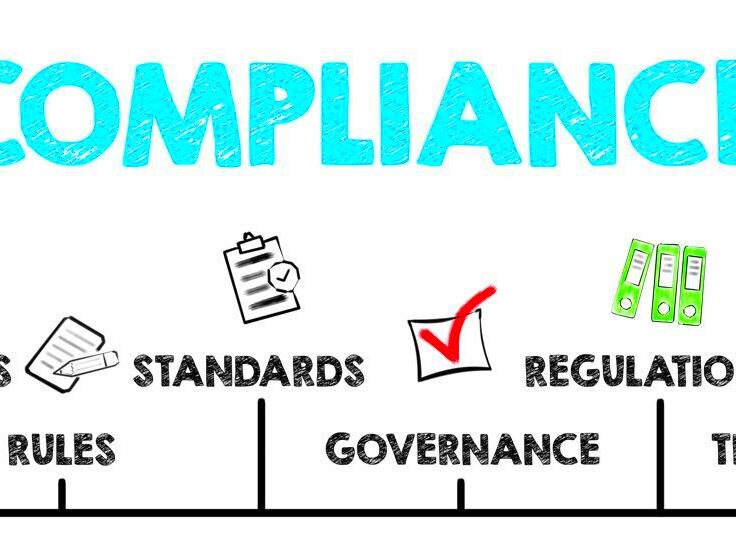Compliance with California’s Business Regulations
California’s business reputation is characterized by a thriving economy and an array of enterprises. For entrepreneurs and owners of businesses it can however become a mountain to climb when understanding the regulations are lacking. Be it a micro enterprise or a conglomerate, abiding by the laws of the state plays an important role in the success story of any establishment. To make sure that finances are not taken out as fines thus helping in gaining confidence from clients, compliance with these laws must be observed. This section will analyze various aspects concerning California’s business regulations such as main areas for compliance, requirement for licensure among others.
Key Areas of Compliance for Businesses

There are various important rules which businesses in California should adhere to while running their operations. The following are key areas of concern:
- Business Structure: Choose the right business entity, such as a sole proprietorship, partnership, corporation, or LLC, to comply with legal requirements.
- Employment Law: Understand regulations around hiring, firing, wages, and workplace safety.
- Environmental Regulations: Comply with laws that protect California’s natural resources and promote sustainability.
- Tax Compliance: Stay updated on state and local taxes applicable to your business.
- Consumer Protection: Follow laws that ensure fair treatment of consumers and prevent deceptive practices.
Licensing and Permits Requirements
Before commencing a trade in California, it is significant to acquire the required licenses and permits. Depending on the type of business and its geographical position, demands may vary. Some of the considerations include:
| Type of Business | Required Licenses/Permits |
|---|---|
| Retail | Seller’s permit, business license |
| Food Service | Health permit, food handler’s card, business license |
| Construction | Contractor’s license, business license, permits from local authorities |
| Professional Services | Professional license (e.g., medical, legal), business license |
To comply, local and state authorities should be contacted for requirements that are specific. By being aware of licensing and permit requirements, you can conserve time and resources which can be spent in business development.
Employment Laws and Regulations
In California, laws governing employment are aimed at ensuring that the workplace environment is fair to both the employee and the employer. One of the reasons why business owners must understand these laws very well is the presence of a diverse labor force and different sectors that require employment in an enterprise. Since hiring as well as firing requires compliance with labor regulations, this is something that cannot be ignored. The following sections will cover important topics relating to California’s labor law such as wage standards, anti-discrimination statutes and workers’ rights among others.
The following are tan essential labor people ought to know about in California:
- Minimum Wage: California has one of the highest minimum wage rates in the country. As of 2024, the state minimum wage is $15.50 per hour, but local cities may have higher rates.
- Anti-Discrimination Laws: Employers must provide equal employment opportunities regardless of race, gender, age, disability, or sexual orientation.
- Workers’ Compensation: California requires businesses to carry workers’ compensation insurance to cover employee injuries that occur on the job.
- Paid Family Leave: Employees are entitled to up to eight weeks of paid leave to care for a family member or bond with a new child.
Employers may establish a pleasant working atmosphere, decrease employee turnover rates and avoid expensive litigation by comprehending these regulations.
Environmental Compliance Standards
Moreover, knowing these standards ensures that they are following the law as well as showing their commitment to a sustainable world. In this article, we are going to take you through some of the key environmental compliance regulations that businesses should observe.
The state of California is known for its strong emphasis on environmental protection and businesses must comply with numerous regulations aimed at minimizing their effects on nature. Adhering to such rules may provide legal protection against any possible fines or litigations there is also a social service within that helps bolster image of credibly maintaining a cooperate environmentally conscious front.
The areas of focus are as follows:
- Air Quality Regulations: Businesses must adhere to emissions standards set by the California Air Resources Board (CARB) to limit air pollution.
- Water Quality Regulations: Compliance with the Clean Water Act is crucial for businesses that discharge wastewater. Permits may be required to ensure safe disposal.
- Hazardous Waste Management: Proper disposal and handling of hazardous materials are governed by strict regulations to protect public health and the environment.
- Environmental Impact Reports: Certain projects may require an environmental impact assessment to evaluate potential effects on local ecosystems.
These requirements improve a business’s image, facilitate attraction of environmentally friendly clients and play a part in making the earth healthier at last.
Tax Obligations for California Businesses
When it comes to controlling and managing a business in California, taxation is an important factor. By knowing what taxes you are supposed to pay, your company would continue to be in good standing with the state authorities and also escape penalties. The California taxation system is complicated with different taxes depending on the nature of business as well as the earning levels. We will delve deeply into the major tax requirements for businesses in California.
The following are a few essential taxes that must be taken into account:
| Tax Type | Description |
|---|---|
| California Sales Tax | A state tax applied to the sale of goods and certain services, which varies by locality. |
| Corporate Tax | Corporations are subject to a flat tax rate of 8.84% on their net income. |
| Franchise Tax | Limited liability companies (LLCs) and other entities must pay an annual minimum franchise tax of $800. |
| Employment Taxes | Employers must withhold federal and state income taxes, Social Security, and Medicare taxes from employee wages. |
It is a must that entrepreneurs have exact documents and be aware of shifting tax regulations. Such knowledge can only be obtained through consulting with such experts who are privy to this information, thus ensuring observance of tax responsibilities.
Consumer Protection Laws to Follow
The state of California has enacted consumer protection statutes to guarantee that enterprises serve their patrons with equity and honesty. Such kind of laws safeguards against fraudulent exercises as well as promotes business—aiding the emergence of faiths between dealers and clients. For proprietors of firms, grasping and following these statutes is not merely complying with the law but also establishing a devoted consumer community. It would be interesting to look into some crucial consumer protection regulations that all businesses should be aware of.
Following are significant laws safeguarding consumers in California:
- Unfair Competition Law: This law prohibits business practices that are unlawful, unfair, or fraudulent, including false advertising and misleading marketing tactics.
- Consumer Legal Remedies Act: This act allows consumers to seek damages for violations related to deceptive practices, false advertising, and other unfair conduct.
- California Automatic Renewal Law: Businesses that offer subscription services must provide clear information about automatic renewal terms and obtain consent from consumers.
- Data Privacy Regulations: The California Consumer Privacy Act (CCPA) grants consumers the right to know what personal information businesses collect and how it’s used.
Following these consumer protection regulations helps companies don’t get any legal issues and maintain good relationship with customers for long-term success.
Navigating Compliance Challenges
For numerous proprietors of companies, crossing the labyrinth of compliance necessities can be daunting particularly in California which is recognized for its intricacies. Factors such as fluctuating rules or lack of means usually lead to compliance issues while sometimes it may be due to misinterpretation of regulations. Herein we shall examine a few typical problems, and how they can adequately be tackled.
Challenges businesses likely encounter include:
- Keeping Up with Changing Regulations: Laws are constantly evolving, making it difficult to stay informed. Regularly reviewing state resources or consulting with legal professionals can help.
- Lack of Understanding: Many business owners may not fully understand specific regulations, leading to unintentional violations. Investing in compliance training for staff can bridge this gap.
- Resource Limitations: Small businesses often struggle with limited resources for compliance. Utilizing online tools and software can streamline processes and reduce costs.
- Managing Multiple Jurisdictions: Businesses operating in multiple locations may face varying compliance requirements. Developing a centralized compliance strategy can simplify management.
Businessmen should take these challenges head-on; it will help them develop compliant situations which allow growth and minimize chances of going against the law.
FAQs about California’s Business Regulations
As a proprietor in California, you may have inquiries concerning adherence to rules and regulations. Knowing about them makes it easy for you to maneuver through the intricacies of managing a business within this particular state. Here are some commonly asked questions that can shed light on the various business-related rules in California.
1. What are the main compliance areas for California businesses?
Employment laws, environmental standards, consumer protection laws, and tax obligations are some of the main areas that California businesses should prioritize.
2. How can I stay updated on regulatory changes?
It is common that if you regularly check the official sites for state administration or subscribe to newsletters of the industry and seek the advice of professionals in the field of law, it would assist in acquiring knowledge.
3. What licenses do I need to operate a business in California?
It depends on the type of business and its location, the required licenses. In general, a business license and any permits specific to your industry are required.
4. What should I do if I receive a compliance notice?
Quickly answer back, go through the message properly, and maybe ask someone who knows about the law to be advised on what you can do and what you are supposed to do.
5. How can I ensure my business is compliant?
Your compliance activities may greatly benefit from investing in training on compliance, as well as employing regular audits and consulting with lawyers.
Thus, in answering most of those common questions, business owners will be able to effectively handle California regulations and create a conducive environment for their businesses.
Conclusion on Compliance with California’s Business Regulations
Every business person operating in this multifarious and transforming state must comply with California’s business laws. The knowledge of different laws concerning employment requirements, environmental performance standards, consumer protecting rights, and tax obligations helps organizations to escape heavy fines as well as gain favorable reputation from their fellow inhabitants. Furthermore, compliance can be augmented by remaining updated on regulation changes and sponsoring employee training sessions. Finally but importantly, compliance should not only then mean meeting the minimum legal requirement; it should also entail creating an enduring company that has credibility which is contributively positive to the economy of California. In fact, embracing a proactive compliance approach will facilitate growth and long term success.


